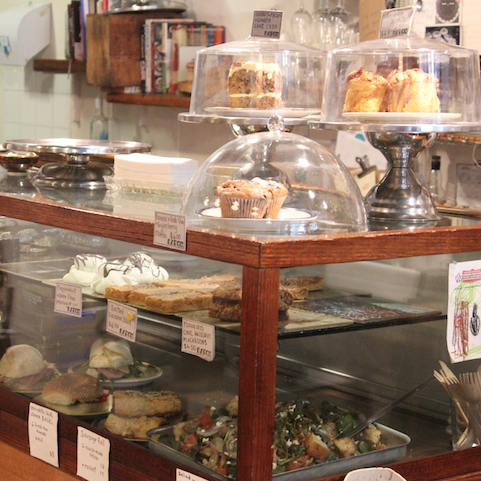Turning the tables: a review of Zomato
The food review website/app Zomato gives customers – often disgruntled – the opportunity to have their say about their experiences at restaurants and cafes. But what's the view from the other side? MATTHEW SIMS asks the cafe and restaurant owners what they like and dislike about the app.


By MATTHEW SIMS
It is a late and lazy Wednesday afternoon.
People weave between each other on their way home or back to work, as does the hasty traffic in Melbourne’s southern suburbs.
Walking down Carlisle St in Balaclava, east of St Kilda, brings with it a rich array of scents and sights, ample evidence of its vibrant food culture.
This is a foodie's paradise. And with the growth of food reviewing websites such as Zomato and Yelp, it's a food critic's heaven, too.
The popular website that was Urbanspoon provided consumers with information on cafes and restaurants, and gave them the option to review their dining experience. But India-based review website and smartphone app Zomato acquired the US business in January, taking on all its existing accounts and reviews.
Zomato makes it easy for people to review and share their dining experiences, easily connecting to their Instagram, Facebook and Twitter accounts.
When the food hits the fan
On the busy end of Carlisle St you could almost miss the quaint, Kiwi-themed Batch Espresso café if it wasn't so popular.
The cafe's menu – several photographs and a list of the services it provides – is featured on its Zomato page. But Batch Espresso owner Marie Chan rarely looks at the reviews.
She said she had been turned off by sexually inappropriate reviews of staff members.
“I think a lot of people see it as a way of venting if they have not had a good experience,” she said.
“In some instances now, the customer is not really interested in giving the café a chance to redeem themselves.”
She also said that despite promising it would monitor the cafe's page for inappropriate reviews, Zomato hadn’t delivered.
“[Zomato] did say they were going to start monitoring comments and checking all the comments before they get posted and removing ones that they think are not suitable,” she said.

“They said someone would be in touch with me and I haven’t heard anything back for ages.”
As Batch Espresso is an established business, her focus is geared towards maintaining a good relationship with regular customers. “A lot of the new cafés now are just really quite soulless,” she said.
Down the road is the newly opened Vietnamese café Saigon Street Eats.
The restaurant’s Instagram profile has been active for 15 weeks with nine posts, and they interact with patrons on Facebook by sharing photographs of the cafe, posting updates and replying to comments.
Owner Kim Tran said their Facebook and Instagram accounts were the key to building their online presence, but promoting the business on Zomato was the next logical step for increasing popularity.
“[Zomato] is a high-driver of people coming through the door, so I thought it would be fantastic to have higher exposure in [Zomato],” Ms Tran said.

If you aren’t after Vietnamese food you could walk all the way down to Acland St and stumble across Leroy Espresso, a café that specialises in vegetarian, paleo, organic and gluten-free cuisine.
Co-owner Anastasia Manousakis said the negative reviews they received outweighed the positive ones, since only one in 200 people would write a review on Zomato if they had a positive experience.
She also said there were occasions where competitors in the area had submitted nasty reviews about their coffee shop. Fake or intentionally misleading reviews are illegal under the Competition and Consumer Act 2010.
“The fact that these negative reviews are sometimes unjust and difficult to have removed can be a little distressing on a business owner,” she said.
“Unfortunately, all it takes is one negative experience to end up online or reach 10 people by word of mouth.
“A negative review can be very discouraging and aggravating if it's come from falsifications or nasty hidden agendas of the individuals writing them.”
While advertising on Facebook has increased their sales by 18 per cent over the past six months, Ms Manousakis said going through the reviews on Zomato could be a rewarding experience.
“A positive review is a reminder of why we are in this business to begin with – to share with and please our customers,” she said.
“The trick is to take every review into consideration and continue to strive to improve, leaving little room for error.”
Despite receiving some complaints from café and restaurant owners, Zomato currently has about 25,000 business listings and 31 million users.
Zomato did not respond to requests for comment.





